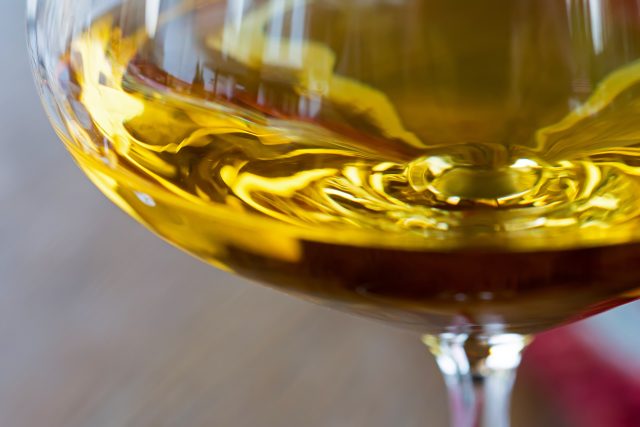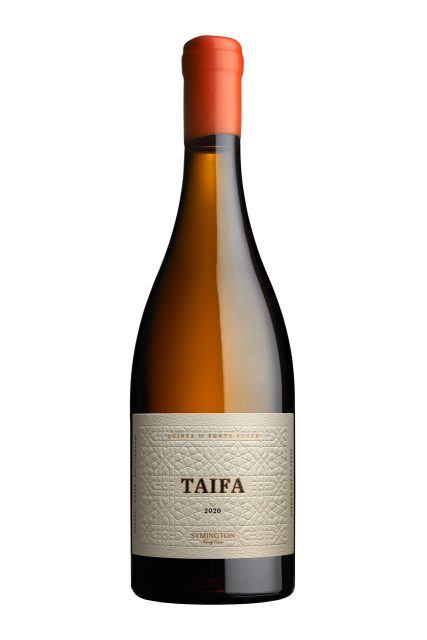This website uses cookies so that we can provide you with the best user experience possible. Cookie information is stored in your browser and performs functions such as recognising you when you return to our website and helping our team to understand which sections of the website you find most interesting and useful.
Why Portugal’s fine white wines are worthy of the world’s attention
A new, barrel-aged white wine from Portugal was launched in London last week, which can certainly claim to be one of the nation’s finest white wines, and among the greats worldwide.

While Portugal has plenty of top-end red wines, primarily from the Douro Valley – the source-region of Port – its fine white wine scene is relatively undeveloped.
But that is changing, albeit gradually. While there are some existing and long-standing high-end whites – such as Niepoort’s Redoma Branco Reserva from the Douro (RRP around £45), or Pêra Manca from Adega da Cartuxa in the Alentejo (RRP of around £60) – the number of ambitious whites from Portugal is only just starting to expand.
One exciting area of development are fine white wines from the Douro, which we have written about before, with Quinto do Noval deserving particular mention for its outstanding ‘Reserva Branco’, launched last year with the 2021 vintage at a price in the UK of around £60 – a similar price to another high-end Douro white called Unico, which is made from a 100-year-old vineyard.
As for an even newer addition to this emerging scene, that comes from the Alentejo, specifically a property called Quinta da Fonte Souto, which was acquired by the Symingtons in 2017 – the Port producing family’s first vineyard outside the Douro.
Soon after purchasing the estate, the producer – best known as the owner of Graham’s and Cockburn’s Ports – released two barrel-aged wines, a white and red, both to critical acclaim, but it was the white wine, somewhat to the Symington family’s surprise, that was the best-received.
As a result, they have planted more white grapes at the estate, which is a 207-hectare property in the Portalagre sub-region of the Alentejo, and released a new, higher-end white wine called Taifa (pictured below), which is made entirely from the Arinto variety, using fruit harvested the 2020 vintage.
Showing it for the first time in the UK at a press dinner in London on 13 May, which I attended, I can report that it is an outstanding and distinctive wine that could rub shoulders with the best barrel-aged whites from around the world – not just those few great examples from Portugal.
I’d like to try it in a more professional setting, and preferably ‘blind’ against its competitive set, but my first impressions are that this is an intense and wonderfully balanced white, and the sort that’s delicious now, but clearly with the structure and concentration to develop greater complexity and honeyed appeal with more time cellaring in the bottle.
For the moment, this inaugural expression from the 2020 vintage is rich in appealing notes of peach and apricot, along with a hint of honeysuckle, complemented by an impressive freshness, with a lovely mix of tangerine, lemon and salt on the finish, complemented by a barrel-sourced creaminess, as well as flavours of toasted marshmallow.
Speaking to db about the wine – which will sell in the UK for around £60 – market manager at Symington Family Estates, Anthony Symington expressed he and his family’s belief that this specific estate, armed with the high-quality Arinto grape, can make really fine white wines.
“Quinta da Fonte Souto was our first foray outside the Douro and we thought it would be predominantly a red wine initiative, but actually, it’s been the whites that have really captured the attention of consumers worldwide,” he said.
“It’s why we have planted more white grapes and grafted more red vines over to whites,” he added, noting that Arinto is being favoured, not just for its naturally high acidity, but also its “nice affinity for oak”.
A grape that’s also well-suited to long-ageing in bottle, Symington told db that the family had planned to launch Taifa last winter, “but hung on a bit longer to let it evolve”.
Concluding, he said, “We think, in time, it can be considered one of the best Portuguese white wines out there… it has been made for ageing, and, in 4-5 years’ time, it will be incredible.”

About Taifa
The name
The term ‘Taifa’ refers to the numerous Muslim principalities and kingdoms that emerged in the Iberian Peninsula during the 11th century following the decline of the Córdoba Caliphate. What is now Portalegre, integrated one of the most extensive Taifas.
How it’s made
The hand-picked grapes are placed in small, shallow boxes and taken to the on-site winery. Manual sorting is followed by destemming and gentle crushing after which the grapes are transferred to a pneumatic press for a light pressing. Fermentation begins in stainless steel vats but immediately after alcoholic fermentation commences, part of the must is transferred to 500-litre French oak barrels (this higher capacity minimises the impact of the wood on the aromatic component). The must is left in contact with the lees with frequent bâtonnage (three times a week up to December, and twice a week during the spring) to encourage extraction of compounds that contribute complexity and structure and that balance very well with the good acidity provided by the altitude of the São Mamede Range.
About the esate
The 207-hectare Quinta da Fonte Souto was acquired by the Symington family in 2017 and is their first vineyard outside the Douro. Lying on the slopes of the São Mamede Range at an altitude of 500 metres in the Alentejo sub-region of Portalegre, the property benefits from cooler and wetter conditions than the hot Alentejo plain.
Technical specifications
- Winemakers: Charles Symington, Pedro Correia and José Daniel Soares.
- Grape: 100% Arinto
- Vintage: 2020
- Ageing: 100% new French and Hungarian oak for 11 months. Bottled in November 2021.
- Alcohol: 14.2% vol.
- Volatile acidity: 0.58 g/L (acetic acid)
- Total acidity: 6.3 g/L (tartaric acid)
- pH: 3.2
- Total sugars (gluc+fruct): 0.9 g/L
- Rrp: Aprrox £60
- Production: Approx 3,000 bottles
Read more
‘Thrilling prospects’ for white wines from the Douro, declares Seely
The best white wines for spring
Austria’s Lenz Moser to launch wine from Portugal at ProWein

